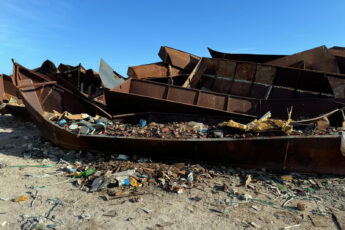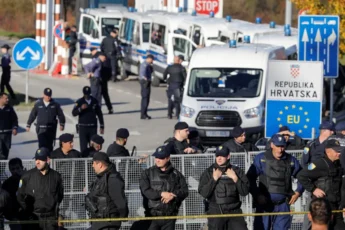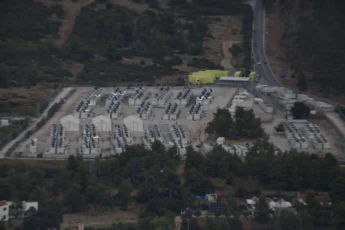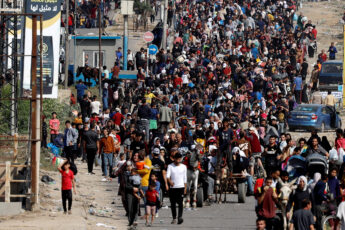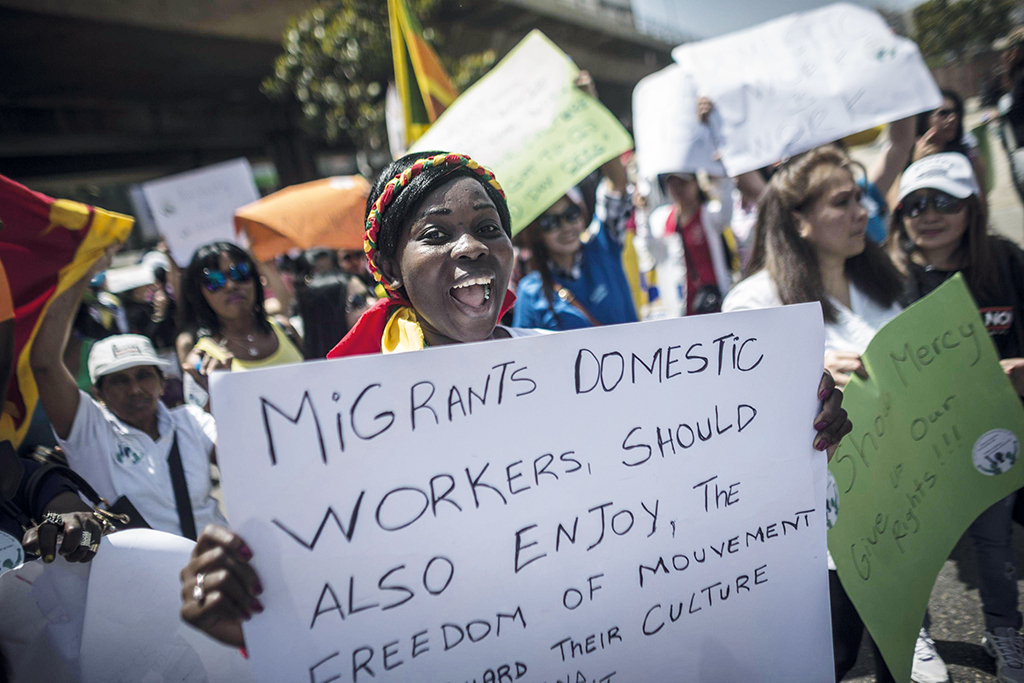
After two transnational days of mobilization, a transnational coordination of migrants’ collectives from Istanbul, Bologna, Paris, Marseille, Madrid, Ljubljana, and Morocco came together online for the first time on the 11th of July. We publish the transcription of the speech of Rafaela Pimentel, migrant domestic worker and member of the Spanish collective Territorio Doméstico. Rafaela tells how the lack of documents affected the living and working conditions of domestic workers even more during the pandemic. For this reason, a transnational struggle for the regularization of women and migrants is, according to her, crucial to give strength to the struggles that are conducted in Europe. To this end, however, it is necessary to build a transnational organization of migrants and to identify common terrains of struggle. Institutional racism cannot, in her opinion, be fought without simultaneously questioning also patriarchy, which continues to relegate women, even more so if they are migrants, to the domestic sphere – that is to say, to a precarious, isolated and often informal workplace – making it even more difficult for them to escape from the blackmail of the residence permit and from a subordinate social position. As Rafaela says, women are at the forefront both in the migrants’ and feminist struggle, and this articulation should also take place on a transnational level.
Rafaela’s words are a fundamental contribution to the transnational path started by migrant women and men at the end of the lockdown. The anger against the conditions in which they were put to work in the “essential sectors”; against the risk of being continually exposed to the risk of contagion and still having to work for miserable wages; against the terrible living conditions in overcrowded dormitories, in reception or detention centers; against limited and temporary regularizations: all this led thousands of migrants to take to the streets on the 30th of May and 20th of June, in response to a call out shared by migrants’ coordinations and collectives in Italy, France, Spain, Germany, Turkey, Lebanon and Morocco. The meeting on the 11th of July was the first opportunity to identify a common ground for a transnational political initiative, shared claims and instruments of struggle, which can strengthen and expand the specific local struggles. The unconditional and unlimited European residence permit was recognized as a fundamental claim to overcome the divisions imposed by national laws and international agreements and to be able to move freely and reject poor working conditions and wages. The next transnational mobilization will be on the 17th of October: for an unconditional and unlimited European residence permit, to put an end to the European regime of exploitation of migrant labor and for migrants’ freedom.
Hello everyone, my name is Rafaela Pimentel Lara, I have been a domestic worker and migrant for 28 years in Madrid and I am part of the Territorio Doméstico collective, a group that fights for the demands of domestic workers, care workers and also migrant women who claim their documents to improve their working and living conditions. As domestic and care workers, migrant women, but also local women, we are fighting together to reorganize care and to ensure that women are not the only ones who have to take charge of it. With the Territorio Doméstico collective, we started in 2006 to talk about our work, to give it visibility and to take it out of the homes and of the private sphere, and to politicize it. We want the social recognition of this work, we want the same rights as any other worker, and we claim that domestic work is no more exclusively performed by women. We meet in assemblies where we all share our knowledges, where we learn from each other and where we really think of ourselves as a collective subject. With the Territorio Doméstico collective, together with other comrades and colleagues, we have also formed a space called the “road of care” so that people who are vulnerable or in difficulty in the labor market can enter it with better, less precarious conditions, conditions that are worthy whether you have documents or not.
The condition of being a migrant or not having papers strongly affects this type of work, it makes it precarious, it impacts the working conditions because without the resident permit you have no rights. Without documents you have no power. Undocumented migrants’ lives are worthless because we have no rights and we are invisible, we are not really in society because people do not recognize the importance of the work we do.
We believe that a common struggle between groups in different European countries for regularization can strengthen local struggles. We believe that people who do such important work as domestic work should be regularized. Our struggle is crossed by different struggles such as the struggle for housing, for health, education, transport, which are rights also linked to documents, and which are local problems but at the same time they can become international or European issues so that there can be common policies guaranteeing these rights. So it seems to us that the struggle for regularization between groups from different countries is very important because it can strengthen and reinforce considerably the local struggles we have.
The difficulties that we encounter in our struggles are different, but those of us who do precarious work and those who do not have papers have a very big organizational problem. The precarity and the lack of papers hamper our organization, it is complicated because we have to work several hours day and night, work far away from where we live, sometimes we work in private spaces where we are alone. Another daily difficulty is the lack of labor rights. But we also believe that by socializing these difficulties and sharing our struggle, we can be stronger.
We believe that in order to strengthen local struggles through a transnational initiative, we have to look for common ground, like the issue of work and working conditions that many migrants experience transnationally. Regularization and rights in our work are fundamental commonalities. As migrants, we carry out essential tasks and we are also essential for the economies of our countries of origin, as through remittances we enable our relatives to resist and survive.
To bring more groups together in Europe and beyond, we believe we must continue to insist on organizing: being together makes us stronger. We need to think together about strategies to get ourselves recognized as migrants and to get recognition for our work. The common point of our struggles and the starting point of our common path is the demand for regularization. A collective struggle is essential: we all want migrants who arrive in Europe to have the same rights as local people, but that is why we have to make alliances and we have to be together to build a society where there are no inequalities. Papers affect working conditions and force us to do all kinds of work in Europe and in the world in order to survive. That is why we must demand regularization. I think this is the key point in the commonalities that we have at the moment because it is something that happens in all parts of the world. We believe this is a great opportunity to unite us and to put the issue of regularization on the table, because for many years we’ve been organizing in different struggles for regularization, but it’s time to come together. We need to say that our lives matter. We think that this is a great moment and that in order to win this fight we have to coordinate from the different countries where we live the same conditions as migrants: we do the same work almost everywhere, it is precarious work in conditions of vulnerability and invisibility. It is very important at this moment to unite and put the lives of migrants at the center once and for all. Papers are necessary to have a better life and our lives are worth the same as others, whether we are migrants, blacks, women or poor people. To win this fight at European level, we have to be together.
It is important to articulate migrants’ struggles with the conditions of women and with their struggle, because only in this way will we leave no one behind. As feminists, we believe that we have to fight to put our lives at the center, to build a society without inequalities, with no more hierarchies based on sex, but, on the contrary, where women are in the front line of the struggle. We need a feminist struggle to build a society that is no longer capitalist, patriarchal and racist.
Thank you very much and I hope that you can have a meeting that brings us to a common plan because we are comrades in this crucial moment, where we must create strategies of struggle that unite us. We, as women, are on the front line in most of these struggles, such as the struggles for the right to housing, to health, to dignified work. We are told that our jobs are essential, but in fact we have no rights at all. This is the perfect time to create a strategy and to cross the borders that divide us, as we are doing now. Although we are in different countries we live in capitalist, patriarchal and racist societies with the same conditions for women, the poor people and for people living in precarious and invisible conditions: It is time to fight together!


